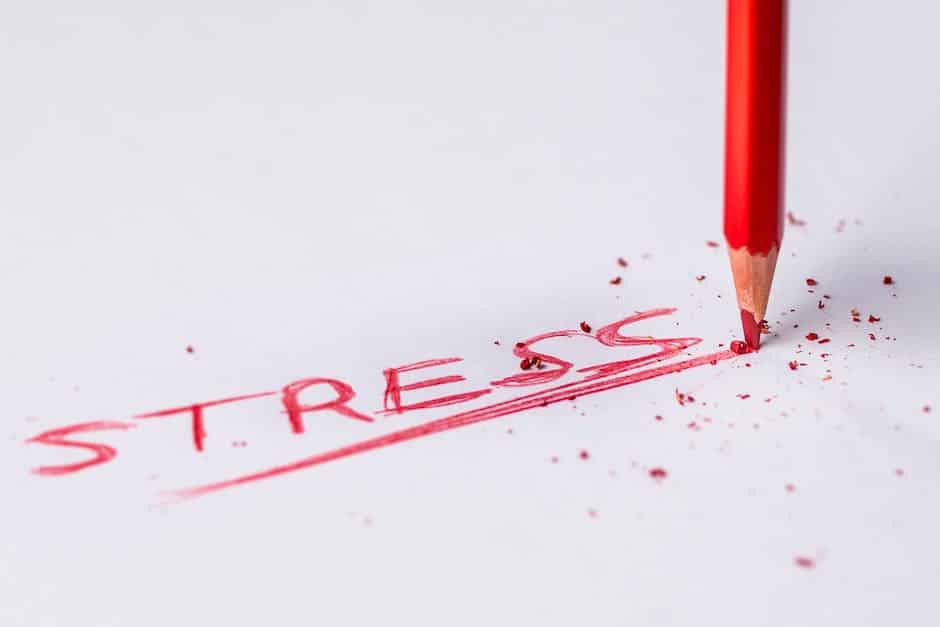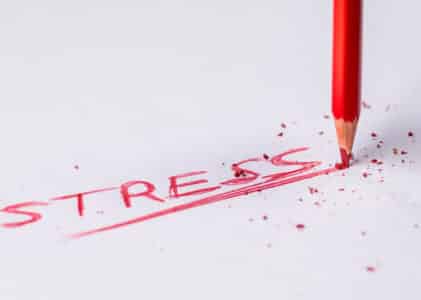Stress relief techniques are now an ever-present part of modern life, and with nearly 70% of American adults reporting feeling stress or anxiety on a daily basis, it’s clear that we need effective strategies for managing it. We know how important it is to find the right relief techniques for your individual needs – so let’s dive into some of the best methods you can use today!
First and foremost, take time out for yourself. This might sound simple but self-care isn’t just about bubble baths and spa days; it includes anything from taking regular walks around the block to scheduling in downtime with friends. Taking a break from whatever is stressing you out will help give you perspective and allow you to come back more focused and relaxed.
Mindfulness exercises are also incredibly helpful when trying to reduce stress levels. A lot of us don’t realize that our emotions influence our thoughts, actions and reactions – mindfulness helps bring awareness to this connection by encouraging us to observe our feelings without attaching judgement or expectations. Not only does this help provide clarity during difficult moments but over time, it can have lasting positive effects on our mental health as well.
Definition Of Stress
Stress is a normal part of life, but when it becomes too much to handle and starts impacting daily activities, it can be a sign that stress management techniques are needed. We're here to help you identify the early signs of stress and come up with strategies for relieving tension.

Deep breathing exercises have been proven to reduce anxiety and improve moods; music therapy has also been found effective in managing stress levels; cognitive behavioral therapy helps individuals recognize patterns of negative behavior associated with high-stress situations; and self care practices such as taking regular breaks from work or school can lead to improved overall well-being.
Stress management for students should include learning how to set boundaries between their academic studies and leisure activities, getting enough sleep each night, and knowing when they need some extra support from friends or family members. It's important to understand the causes of stress so that we can develop tailored approaches for reducing its effects on our lives.
Causes Of Stress
Now that we have a clear understanding of what stress is, let's discuss the various common causes of it. Stress can arise from both internal and external sources. Internal sources include a person's thoughts, expectations, or beliefs about their life situation. External sources refer to events or situations outside of our control such as work-related pressures, family obligations, traffic delays, etc.
It is important to recognize and acknowledge these triggers so that you can take proactive steps towards managing your stress levels. Some helpful strategies for reducing stress include yoga for stress relief, meditation for stress reduction, progressive muscle relaxation techniques, natural remedies for stress (such as aromatherapy), and exercise for stress relief like running or cycling. All of these activities are beneficial in helping to reduce tension within the body while giving your mind some much needed time off!
Taking regular breaks throughout the day also helps manage feelings of overwhelm and anxiety by getting away from stressful stimuli even if just briefly. With practice and dedication to making changes in your lifestyle you will be able to better cope with potential stresses before they become too overwhelming. The key is finding what works best for you – everyone has different needs when it comes to de-stressing effectively!

Signs And Symptoms Of Stress
It's important to know the signs and symptoms of stress so that you can recognize it in yourself or others. Symptoms of stress include physical, emotional, mental, and behavioral changes.
- Physical: headaches, fatigue, increased heart rate, chest pain or tightness
- Emotional: irritability, restlessness, sadness or depression
- Mental: difficulty concentrating or making decisions
- Behavioral: procrastination, avoidance of difficult tasks
Stress can also manifest itself as panic attacks which can be debilitating if not managed properly. Fortunately there are a variety of mind-body therapies for relieving these episodes such as yoga and meditation. Workplace stress management is also an effective way to reduce anxiety levels brought on by job-related issues. Furthermore, time management techniques and good sleep hygiene habits can help alleviate the negative effects of chronic stress.
These strategies allow us to take control over our lives and create balance between work responsibilities and personal well being. The benefits of managing one’s own stress level can have positive impacts on all aspects of their life from improved relationships to better overall health. From here we will discuss those very benefits in more detail.
Benefits Of Stress Management
Stress can have a devastating effect on our mental, physical and emotional well-being. Fortunately, there are many different stress relief techniques that we can use to effectively manage the effects of stress. Understanding relaxation techniques is essential for effective stress management.
Relaxation techniques such as mindfulness meditation, breathing exercises, positive affirmations and guided imagery for stress management can help us reduce not only the intensity of our stressful feelings but also the frequency with which they arise.
Mindfulness practices involve attending to one’s present moment experience in a non-judgmental way while consciously observing thoughts and emotions as they arise without getting caught up in them or reacting to them. Breathing exercises like deep abdominal breathing or alternate nostril breathing are simple yet powerful methods used to calm an anxious mind and body.
Positive affirmations allow us to challenge negative self-talk by replacing it with more realistic and hopeful messages about ourselves and our lives. Guided imagery for stress management involves using visualization skills to create calming images in order to relax both body and mind.
Through regular practice of these relaxation techniques, we can learn how to better cope with life's challenges so that we no longer feel overwhelmed or helpless when faced with difficult situations. Learning how to recognize warning signs of distress early on will empower us to take proactive steps towards managing our own well being before things get out of hand.

Understanding Relaxation Technique
Relaxation techniques are an important tool for taking control of your stress. These tools provide a way to pause, slow down and create space between you and the event causing your stress.
There are several different types of relaxation techniques that can help reduce stress. Progressive relaxation techniques involve tensing and relaxing each muscle group in sequence while visualizing or imaging deep relaxation throughout the body.
Mindfulness based Stress Reduction (MBSR) is another type of relaxation technique that helps people become aware of their thoughts and emotions without judgement or criticism. Mindful breathing exercises such as 4-7-8 breathing can be used to bring attention away from stressful situations by focusing on the breath instead.
Finally, The Relaxation Response, developed by Dr Herbert Benson, is a combination of focused meditation, visualization and mindfulness practice which induces physical changes associated with decreased tension including slower heart rate and respiration, lower blood pressure, improved digestion and improved immune system functioning. All these forms of relaxation offer opportunities to take charge of our response to stress instead of being overwhelmed by it.
Mindfulness Meditation
The world of mindfulness meditation is an interesting one, and can be used to great effect when it comes to reducing stress. Does it sound too good to be true? Well, all the evidence points towards its powerful effects in helping people relax and reduce their anxiety levels. It's a technique that I truly believe in, which is why I'm going to give you a quick overview of how it works.
| Technique | Description | Benefits |
|---|---|---|
| Mindful Meditation | Sitting quietly for 10-15 minutes with focus on breath or body sensations, allowing thoughts and emotions without judgement. | Improved well being & clarity; reduced stress & anxiety levels; improved concentration & productivity; increased feelings of self acceptance & personal growth. |
| Guided Meditations For Stress Relief | Listening to recorded audio instructions while repeating words, sounds or mantras while focusing on physical sensations or mental images. | Reduced overall stress response and heightened awareness of surroundings; greater emotional resilience and inner peace; enhanced creativity and problem solving skills. |
| Visualization Exercises | Closing eyes and creating vivid mental imagery of desired outcomes or positive scenarios; imagining yourself relaxed and comfortable in various situations. | Increased relaxation responses throughout the body; improved visualization techniques for goal setting purposes; boosted confidence in ability to cope with certain situations/environments. |
Mindfulness has been proven as an effective form of self care for mental health – from improving your moods, increasing energy levels and calming racing thoughts, to feeling more contentedness with those around you.
With regular practice, these types of exercises have the potential to make real changes in our lives – not only because they help us manage our own stress levels but also due to their impact on developing better relationships with others! So what are you waiting for? Give mindful meditation a try today – there’s no time like the present!
Progressive Muscle Relaxation
Now let's move on to the next stress relief technique: progressive muscle relaxation. This is a great tool for reducing physical tension and mental stress. The idea is that by tensing and then relaxing all of your major muscles, you can help to release any stored up nervous energy in the body.
To begin, start with your feet and work up towards your head – tense each muscle group for five seconds before releasing it. You'll find that this process induces a deep state of relaxation throughout the entire body.
Other techniques to consider include massage therapy for stress relief, relaxation apps and tools, grounding techniques, self-massage for stress relief, and mindful movement practices such as yoga or tai chi. All of these options provide effective means of relieving both physical and emotional stress while also promoting greater overall health and well being.
So if you're looking for an additional way to reduce stress during the day, give some of these strategies a try! Moving forward now, let's explore how visualization exercises can be used to relax the mind…

Visualization Exercises
Visualization exercises are one of the most popular and effective stress relief techniques. They involve picturing a calming scene or emotion in your mind to help relax your body and reduce tension. Visualization can be done with or without guidance from someone else, such as a hypnotherapist. Here are some helpful tips for engaging in visualization:
- Take time to become comfortable and relaxed before beginning any exercise
- Find an environment that is free from distractions, like turning off electronic devices
- Focus on deep breathing while visualizing yourself in the peaceful place you have imagined
Hypnosis for stress relief is another form of relaxation technique that can provide immediate results. It involves focusing on positive imagery and sound recordings that make it easier to access deeper levels of relaxation.
Aromatherapy for stress management is also beneficial; certain essential oils can help promote calmness and clarity when inhaled through diffusers or applied topically.
Biofeedback for stress management uses technology-based tools to measure physiological responses, so individuals can learn how their bodies respond to different kinds of stimuli.
Technology based stress reduction tools offer many advantages over traditional methods, allowing users to customize their experience easily according to their individual needs.
Breathing Exercises
Moving on from visualization exercises, breathing techniques are also a great way to relieve stress. Mindful breathing can help you become more aware of your body and the sensations associated with it. This practice helps to calm your mind by focusing it on the present moment and away from any anxious thoughts or worries.
It's important to remember that mindful breathing should be done in a slow, deliberate manner – no one has ever felt calmer after hyperventilating!
Journaling is another helpful tool for dealing with stress. Writing about things that cause us anxiety can help us process our emotions in a healthy way. By writing down our feelings and concerns we’re able to gain clarity on how best to proceed with whatever problem we're facing. As an added bonus, journaling allows us to keep track of progress made over time as well as any areas where improvement is needed.
Body scanning is yet another technique which can improve our ability to manage stress. Body scans involve paying attention to different parts of the body while allowing oneself to relax each area through breath work and awareness practices.

Additionally, qigong-style movements such as tai chi can be incredibly effective at helping clear out stagnant energy resulting from long days of work or worrying thoughts. Finally, gratitude practices like keeping a ‘gratitude list’ have been shown to boost both mental health and overall well being.
At its core, reducing stress requires consistent effort combined with conscious practice; however, these strategies discussed here can serve as powerful tools when used correctly and consistently applied into one's life. With patience and diligence these techniques will empower individuals towards greater peace and balance within their lives.
What Are The Long-Term Effects Of Stress?
The long-term effects of stress can be crippling, like a slow burn that eats away at your well being. It's important to take time out for yourself and practice self-care before it has an opportunity to fester in the background of our lives. Think of stress as a trickle down effect; if we don't nip it in the bud now, then over time it will build up until its eventual explosion causes irreversible damage.
Stress is insidious and won't go away without some effort on our part. A good place to start is by taking stock of how we're feeling both physically and mentally – are there any telltale signs telling us something isn't quite right?
If so, mindful activities such as yoga or meditation can help us feel more grounded when life gets overwhelming. In addition, setting aside regular periods throughout the day where you disconnect from technology and devices allows us moments of peace and clarity that are essential for restoring balance within ourselves.
We owe it to ourselves to build healthy habits into our daily routines; this could be anything from going for a walk around the block once per day or cooking a nutritious meal instead of opting for convenience foods. Taking these small steps towards self improvement shows that we care about ourselves enough to invest in our own well being, which ultimately has lasting impacts on not only our emotional state but also our physical health too.
How Can I Prevent Stress From Happening In The First Place?
Stress is a part of life, but it doesn't have to be. Prevention can often be the best medicine when it comes to managing stress in all areas of our lives. We're here to provide you with some tips and strategies on how to prevent stressful situations from occurring in the first place.
First and foremost, ensure that you're taking care of your own needs by getting enough rest, exercising regularly, eating healthy meals, and engaging in activities that bring joy into your life. Taking time for yourself helps keep you centered and focused on what really matters most: your well-being. Additionally, try to create boundaries around work-life balance – set aside dedicated “me” time each day where you don’t focus on anything else other than unwinding.
It's also important to recognize any signs of burnout or fatigue before they become unmanageable; pay attention to feelings such as frustration, irritability or exhaustion so that you can address them quickly rather than letting them get out of control.
Practicing mindfulness techniques like meditation or deep breathing exercises can help bring awareness to any thoughts or feelings that may lead up to feeling overwhelmed or stressed out.
Lastly, take small steps towards achieving goals instead of trying to tackle everything at once; breaking down tasks into manageable chunks is easier on the mind and body since it allows us more opportunity for success!

These are just a few simple measures we can adopt into our everyday lives in order to reduce stress levels overall. When we make proactive decisions about how we manage ourselves mentally and physically – this will ultimately result in improved mental health and an increased capacity for resilience throughout our daily lives.
Are There Any Lifestyle Changes I Should Make To Reduce Stress?
Did you know that 77% of Americans experience physical symptoms caused by stress? It's no wonder why so many people are seeking ways to manage their stress levels. One way to reduce the amount of stress in your life is to make lifestyle changes.
When it comes to creating a healthier and more balanced lifestyle, there are several areas you can focus on. To begin with, try incorporating activities into your daily routine that help relax and rejuvenate you.
This might include yoga or meditation, taking a warm bath, reading for pleasure, or engaging in an enjoyable hobby. Additionally, getting enough sleep and exercise can also be beneficial when trying to decrease stress levels.
Another great tip for managing stress is maintaining healthy relationships with friends and family members. Spending quality time with loved ones helps boost mental health and emotional well-being. Also, aim for balance between work and leisure – too much of one or the other can lead to burnout or feeling overwhelmed. Here’s a quick list of things you can do:
1) Incorporate relaxation activities into your daily routine
2) Get enough sleep
3) Exercise regularly
4) Spend time with family/friends
5) Balance work & leisure
Making small adjustments in your everyday habits can have a positive effect on your overall well being. If done right, these modifications may even have long-term benefits down the road!
Are There Any Medical Treatments For Stress?
Are there any medical treatments for stress? Stress is a complex condition that can be managed in various ways, depending on an individual’s specific needs. A person's lifestyle and overall well being are the two most important factors when it comes to managing their own stress levels.
However, if lifestyle changes or other techniques have not been successful enough, then seeking help from a healthcare professional may be helpful.
There are a few different medical treatments available that can reduce symptoms of stress and provide relief. These include psychotherapy, cognitive-behavioral therapy (CBT), medication such as antidepressants and anti-anxiety medications, and natural remedies like acupuncture and massage therapy.
The type of treatment chosen will depend on the severity of each individual's case as well as their personal preference. It is also important to consider how long the effects of these treatments last before deciding which one would best suit your needs.
No matter what method you choose for relieving your stress levels, it's crucial to get regular checkups with your doctor so they can monitor your progress over time and adjust your course of action accordingly. Working together with them to find the right solution for you is essential in order to ensure lasting results and better manage your mental health in the future.
Are There Any Activities That Can Help Reduce Stress?
Have you ever wondered if there are activities that can help reduce stress? It is a common question among those who seek relief from the pressures of life. As a stress management consultant, I am here to tell you that yes, there are indeed several activities that can be beneficial in reducing your levels of stress.
From physical exercise and yoga to cognitive behavioral therapy and mindfulness techniques, many activities have been found to provide meaningful benefits for managing and relieving stress.
Regularly engaging in physical activity such as walking or running helps release endorphins—the body's natural feel-good hormones—which can lead to improved moods, reduced anxiety, and an overall feeling of well-being. Similarly, participating in meditation or other relaxation practices like deep breathing may help bring about greater calmness and clarity when facing difficult situations.
Moreover, talking with friends and family members about what we're going through can also be quite helpful. Talking openly allows us to express our feelings without fear or judgement, which can result in feeling reassured and more confident when tackling stressful events.
Additionally, seeking professional assistance from a qualified therapist has been widely shown to improve psychological functioning during times of distress. With these strategies at your disposal, it is possible to take control over the amount of stress one experiences on a daily basis.
Thoughts
Stress is a natural reaction to various life events, but it can have long-term effects if left unchecked. In order to reduce stress levels, prevention and lifestyle changes are essential. Additionally, there are medical treatments and activities that can help relieve the strain of everyday life.
The best way to combat stress is by taking a proactive approach. This includes proper nutrition, regular exercise, adequate sleep, and finding ways to relax during stressful times.
Making small changes in your routine such as practicing mindfulness or meditation can be effective for reducing stress levels over time. If these methods don’t work for you, then consider speaking with a doctor about medication options or joining a support group for additional assistance.
With the right strategies in place, you can take control of your stress and find relief from its effects! As your personal stress management consultant, I'm here to offer guidance and support on this journey – so please don't hesitate to reach out anytime you need an extra hand!


